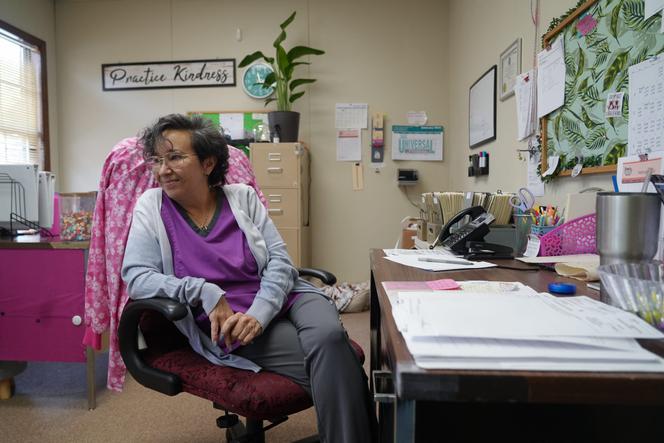


In the spring of 2022, Leilah Zahedi-Spung, an obstetrician-gynecologist in Chattanooga, Tennessee, had no particular concerns about her future. Although aware of conservative attacks on voluntary termination of pregnancy (VTP), she never imagined that the right to abortion could be challenged by the Supreme Court. "A precedent set 50 years ago," she pointed out. "There was no way the justices would overturn it."
On June 24, she realized that her situation "was going to change really drastically," she said. "It was going to be very dangerous for me to continue practicing." On that day, the Supreme Court handed down a decision that, by returning abortion rights to the federal states, turned the geography of reproductive care in the US upside down and changed the lives of many doctors. "I tried to stay as optimistic as possible," said Zahedi-Spung. "I wanted to stay in Tennessee," the southern state where she had been recruited in October 2020 after four years in medical school, four years of residency in Ob-Gyn, and three years in a maternal-fetal medicine fellowship specialized in high-risk pregnancies.
In this conservative-dominated town of 167,000, the doctor was the only provider to perform second-trimester dilatation and late-term abortions. "I was fighting an uphill battle even from the get-go," she said, "but I took the job because women in the area needed care."
Thirty days after the Supreme Court decision was released, the law banning abortions, preemptively passed by the Tennessee General Assembly, went into effect. Not only does the law ban abortions, it makes no exceptions. "Treating an ectopic pregnancy was technically a felony," said the practitioner. "Under the law, the way it was written, the only protection, quote unquote, was an affirmative defense that essentially said if I treated someone who was dying with an abortion, I would be charged with a felony. I would have to go to trial, and I would have to defend my actions to a jury and a judge, and they could decide that what I did was necessary, but I still would be charged with a felony, lose my license, lose my credentialing, lose my job. And probably never be able to get another job because once, even if you're not convicted, having a felony charge on your record as a physician is just a death sentence for your career."
Zahedi-Spung hired a criminal defense attorney, whom she consulted before each emergency procedure. "I was really worried I was going to get charged with something for saving someone's life." Eventually, she grew tired of working in a hostile environment. Tired of having to justify everything she was doing. She felt she had to pay lip service to everyone she worked with just to do her job. "Pulmonologists don't have to be nice to everybody to intubate someone!" she said. "I have to jump through hoops in order to save someone's life because someone doesn't like it because the fetus has a heartbeat."
You have 59.57% of this article left to read. The rest is for subscribers only.
